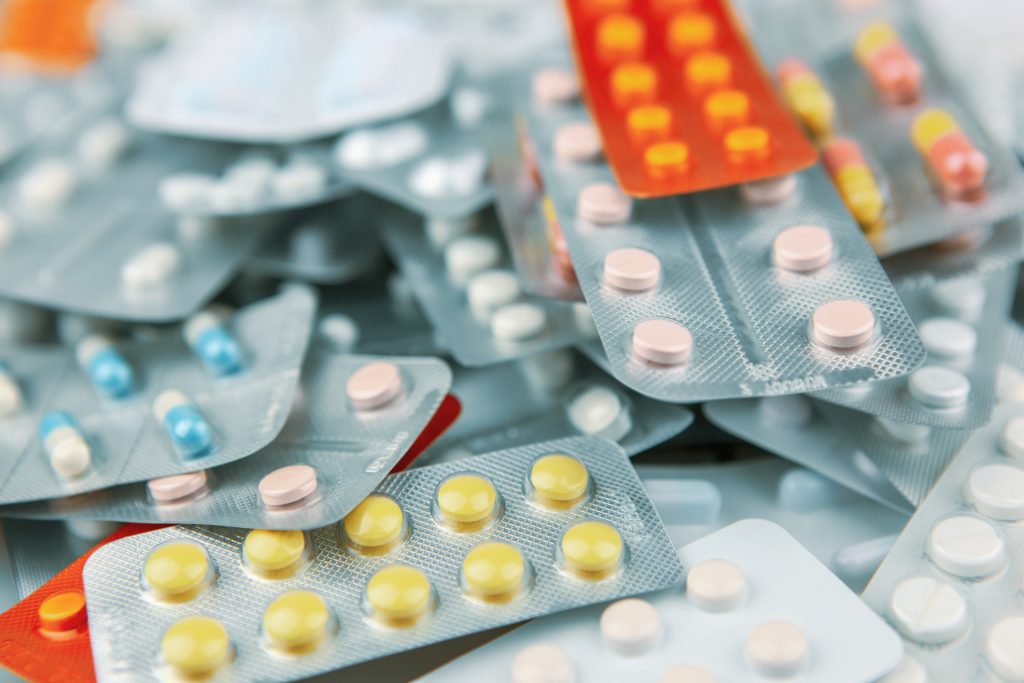The United States appears to have the most competitive market for generic drugs among high-income countries, according to a new study.
Prices in eight high-income countries under study dropped by between 30 to 82 percent within eight years after going off patent, with the biggest price decline occurring in the United States (82 percent). U.S. prices for the drugs decreased by 32 percent in just the first year.
Australia came in second, with a 64 percent drop in prices in the eight-year period. Switzerland came in last, at 18 percent. Prices declined by an average of 50 percent in Japan and Germany, while Canada, France, and the UK experienced price declines of less than 32 percent.
The study, “Drug Prices After Price Expiration in High-Income Countries and Implications for Cost-Effectiveness Analyses,” examined 505 drugs’ patent expirations in eight high-income countries: Australia, Canada, France, Germany, Japan, Switzerland, the UK, and the United States. Data from the eight countries were used to assess the relationship between patent expiration and drug prices.
The study was published in JAMA Health Forum on August 16.
Competition Rules
Market forces push drug prices down after patents expire, enabling competitors to enter the fray, the study found.
“The loss of patent protection for originator small molecule drugs and biologics is a crucial event for manufacturers, patients, and health care systems,” the study states. “After a period of profit internalization by the innovator, society benefits from the innovation at lower prices due to the market entry of generic versions and the subsequent price competition. However, the level of competition after market entry of generic and/or biosimilar drugs varies strongly across markets and nations.”
Generic Importance
The study’s findings take on greater significance because of the growing role of generics in the American prescription drug market.
“With an estimated 91% of all prescriptions in the United States being filled by generic drugs, the market has witnessed a significant penetration in these cost-effective alternatives,” BioSpace reported in May 2024. “The FDA’s approval of over 32,000 generic drugs underscores the breadth and depth of this segment’s contribution to healthcare affordability.”
“This research finds that competition works in the drug industry,” said Rea Hederman, executive director and vice president of policy research at the Economic Research Center. “When more drug manufacturers are able to use generics to compete with the original drugs, prices decline as we expect. Fostering real competition instead of artificial price controls that harms innovation is a better policy for the pharmaceutical industry.”
Patent Politics
Investors rely on patent protection to recoup the cost of drug development. Research and development costs for prescription drugs vary widely in the United States, ranging from $161 million to $4.54 billion, a 2021 study published by the National Institutes of Medicine found.
According to the Food and Drug Administration, patents can last for 20 years from application and are not the same as “exclusivity,” which refers to delays or prohibitions of approval for competitor drugs and generally for a shorter period. Drug companies can also extend protection from competitors by creating new purposes for their drugs, a practice known as evergreening.
Price Disparity
Health care analyst Gregg Girvan, a resident fellow at The Foundation for Research on Equal Opportunity, says high prices of branded drugs are one of the biggest differences between the United States and other countries’ health care systems.
between the United States and other countries’ situations.
“In a broader sense, the reason the United States sees the largest price declines following generic entry is that branded drugs are so expensive”, said Girvan. “In most cases, prices on branded drugs prior to generic competition are unjustified compared to each drug’s effectiveness.
“The problem is worse for biologic drugs because federal policy gives drug companies longer monopolies on such drugs and because drug companies abuse the patent system to keep biosimilars off the market far longer than policymakers intend,” said Girvan. “In short, we need a policy like Hatch-Waxman for biologics; the Biologics Price and Competition Act is wholly inadequate to establishing a truly free market for biologics.”
Hatch-Waxman is known as the Drug Price Competition and Patent Term Restoration Act which governs generic drug competition and the Biologics Price and Competition Act which establishes the pathway for biosimilar drugs.
U.S. Best at Innovation
Patients benefit from the strong intellectual property protections accorded to innovative drugs in the United States, says Merrill Matthews, a resident scholar at the Institute for Policy Innovation.
“While the media regularly highlight complaints about the high costs of prescription drugs in the U.S., the fact is the current system balances the need for innovator intellectual property protections with the need for affordable prescription drugs better than any other country,” said Matthews.
“While U.S. patients may pay more for some new drugs than patients in other countries, U.S. patients typically pay far less for generics, which comprise most U.S. prescriptions,” said Matthews. “That balance has allowed innovator drug companies to develop medicines for some of the most serious medical conditions, innovations that would not be possible without existing intellectual property protections.”
In 2003, Congress approved legislation allowing states to purchase prescription drugs from Canada and other countries to lower costs. Florida, in 2023, was one of the most recent states to pass such a law.
Bonner Russell Cohen, Ph.D., (bcohen@nationalcenter.org) is a senior fellow at the National Center for Public Policy Research.
Internet info:
Miquel Serra-Burriel, Ph.D, et.al., “Drug Prices After Patent Expirations in High-Income Countries and Implications for Cost-Effectiveness Analyses,” JAMA Network, August 16, 2024: https://jamanetwork.com/searchresults?author=Gellért+Perényi&q=Gellért+Perényi
